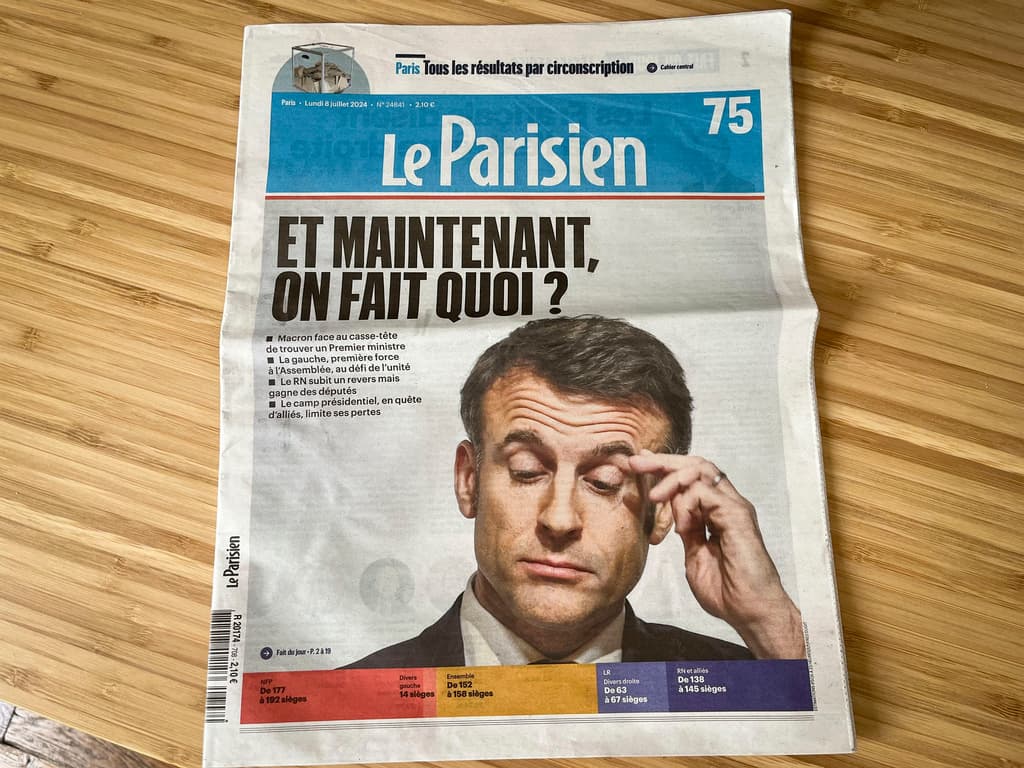"And what do we do now?" is written on the front page of the daily newspaper Le Parisien the day after the second round of the parliamentary election. And that is the big question, now that the excitement from the election night has subsided. What does France do now?
The question of who will move into the prime minister's residence Matignon after outgoing Prime Minister Gabriel Attal remains unanswered.
Attal submitted his resignation to President Emmanuel Macron on Monday - which Macron refused to accept. Macron believes that the country needs a prime minister to "maintain stability".
Until 8 pm on Sunday evening, many, both in and outside France, believed that the next prime minister would be named Jordan Bardella and come from the far-right party National Rally (RN), which in all polls seemed to be the largest.
Left-wing alliance largest
The left-wing alliance New People's Front (NFP), consisting of the radical left party Unsubmissive France, the Socialist Party, the Ecologists, and the Communists, unexpectedly made a strong advance and snatched first place as the largest alliance ahead of RN and its allies.
Despite the joy on the left, the road ahead is far from smooth and frictionless. Now, a complicated horse-trading between the left and Macron's center alliance awaits, where the two sides must agree on who will become the prime ministerial candidate.
I think it will be a difficult "cohabitation" and the country will not make much progress over the next three years, says Alice Lafont, whom TT meets in Paris' 18th arrondissement.
She believes that the prime minister will come from the left.
I think it could be Olivier Faure (Socialist Party), but it's hard to say.
"Republican front"
The left and center's mobilization made their attempt to create a "republican front" successful.
In several constituencies, there were three possible candidates after the first round. The republican front would more or less force voters to vote for a candidate they might not really want, by having one of the two left or center candidates in constituencies with three candidates withdraw.
It was long uncertain whether it would succeed, since the left and center are far apart in many respects. On both sides, there are those who absolutely do not want to have anything to do with the other side, something that will spill over into the choice of prime minister.
Many whom TT talks to believe that the negotiations between the alliances will be difficult now. One of them is Maurice. He is glad that the political turbulence seems to be calming down.
But it will be hard to find a prime minister, he says to TT.






